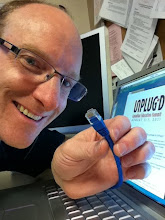 In my home province of Ontario, here in Canada, it is only by demonstrating academic excellence that one able to consider a career in teaching. In fact, if you are not an A student in university, one is unlikely to find a place in a faculty of education within the province.
In my home province of Ontario, here in Canada, it is only by demonstrating academic excellence that one able to consider a career in teaching. In fact, if you are not an A student in university, one is unlikely to find a place in a faculty of education within the province.While I'm not going to argue that we need more teachers with lower grades, I do think that we need more teachers who understand what it means to struggle with learning! As I see it, there is a real need for universities to consider a broad spectrum of characteristics and qualifications in potential teachers... far more than simply identifying the applicants with the highest grades.
So what characteristics must a teacher have, and how can these possibly be considered by faculties responsible for preparing the teachers of tomorrow? These are big questions... ones that would require careful planning; but just in case faculties out there might be open to a more time-consuming application process, here are two big ideas that would let universities know how committed their applicants were to joining the profession:
1] Include a face to face interview! Allow candidates equal footing in preparing by providing sample questions. This way potential teachers can demonstrate their ability to prepare a messages on specific topics for a specific audience. Jeff Utech's recent post on Interview Questions for International Job Fairs has a number of questions that once adapted, would ensure candidates were aware of expectations for future teachers to engage a range of technology tools.
2] Invite applicants to submit a learning portfolio that highlights their own learning styles and demonstrates a commitment to continued learning. Dr. Helen Barrett's Electronic Portfolio Resources provide a range of possibilities for experienced educators, but could reasonably be adapted for teacher candidates.
Now there may well be universities using similar strategies to ensure the acceptance of the most appropriate teacher candidates, but until more faculties of education open themselves to a more diverse population of students, our schools are destined to get what they've always got: Teachers who were good at school and liked it fine just the way it was!




0 comments:
Post a Comment